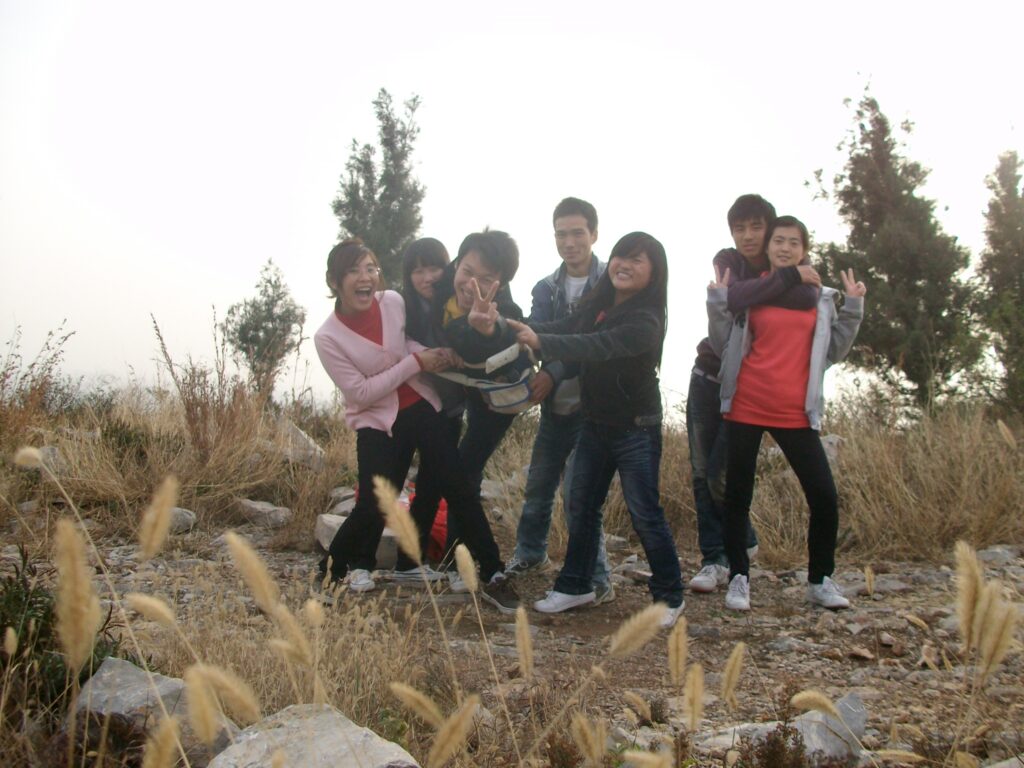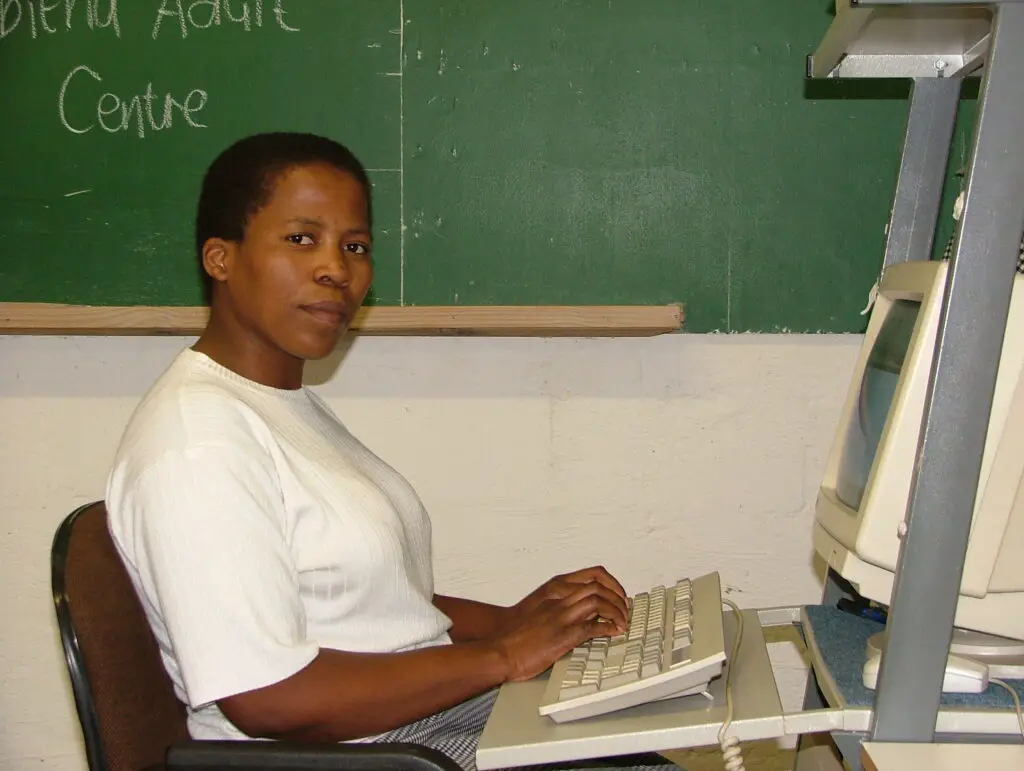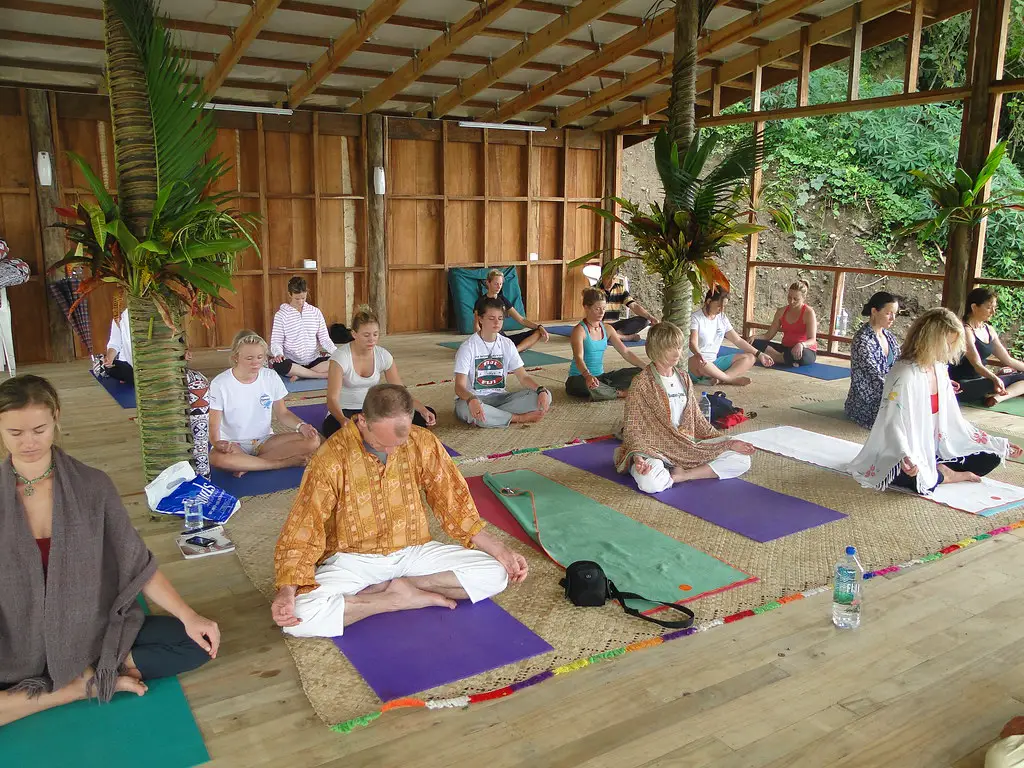We’ve all heard the gospel of hard work: rise and grind, hustle harder, sleep when you’re dead, blah blah blah. And sure, hard work matters—but it’s not the golden ticket to success people make it out to be. If it were, every overworked barista, night-shift nurse, and spreadsheet-slaying intern would be running Fortune 500 companies. Spoiler: they’re not. That’s because success isn’t just about grinding harder than everyone else—it’s about working smarter, making the right connections, catching a lucky break, and yes, getting some actual sleep.
Science has stepped in with receipts, and it turns out there are plenty of things that impact your success more than sheer elbow grease. From the power of emotional intelligence to the magic of being in the right place at the right time, the research is clear: hustle culture is overrated. So before you pull another all-nighter or stack your calendar with 14 productivity hacks, take a breath. Here are 15 things more important than hard work—according to actual, peer-reviewed, lab-coat-approved science. Let’s dig in.
1. Creativity

Hard work might crank out code or reports, but creativity births the wild ideas that disrupt industries. It’s the spark that turns “just another app” into TikTok and “another coffee chain” into Starbucks. Creative thinkers connect seemingly unrelated dots, imagine new possibilities, and adapt solutions on the fly—skills that rigid grind culture simply can’t match. Plus, engaging in creative hobbies recharges your mental batteries, making you more resilient to work stress. When teams prioritize creative brainstorming, they outperform groups that just follow the manual.
In a feature by the American Psychological Association, researchers point out that creativity enhances problem-solving, boosts motivation, and even improves well-being—so pencil in that watercolor class or improv workshop to keep innovation flowing.
2. Quality Sleep

You might think pulling all-nighters shows dedication, but it actually makes you a zombie in human skin. When you skimp on sleep, your brain’s attention, memory formation, and decision-making circuits go offline like bad Wi-Fi. That means that crucial presentation you stayed up crafting might flop harder than a poorly timed meme. Plus, lack of sleep messes with your mood regulation, making you more prone to stress and irritability—no one wants to collaborate with Grumpy Cat. On the flip side, proper rest boosts creativity and problem-solving, giving you the mental clarity to spot opportunities others miss. It even supercharges your immune system so you’re not coughing on coworkers during flu season.
Want proof? According to the Sleep Foundation, well-timed, high-quality slumber directly correlates with better on-the-job performance, sharper focus, and faster recovery from mental fatigue. So next time someone brags about their 4 a.m. caffeine binge, just nod and hit the snooze—science has your back.
3. Emotional Intelligence

You can ace every technical skill test, but if you can’t read a room, you’ll still be that person who scares away teammates. Emotional intelligence (EQ) is your superpower for navigating office politics, defusing conflicts, and building rapport faster than Wi-Fi. It’s not about being touchy-feely; it’s about recognizing your own stress signals, empathizing with colleagues, and choosing responses that keep collaborations on track. High-EQ folks earn trust and inspire loyalty, which often translates to better team performance and career advancement. Plus, they handle feedback like pros—no defensive walls needed. It’s like having a cheat code for networking events: you’ll remember names, moods, and hidden agendas without breaking a sweat.
Per Verywell Mind, people with strong EQ are statistically more likely to succeed in leadership roles and maintain healthier work relationships. So while you’re polishing your resume, don’t forget to polish those people skills, too.
4. Social Connections

Networking isn’t just LinkedIn stalking—it’s forging real relationships that bring fresh perspectives, insider tips, and unexpected job leads. Strong social ties provide emotional support during crunch times and amplify your creativity by exposing you to diverse viewpoints. Even casual “weak ties” (think: your barista or fellow yoga class regular) can open doors you never knew existed. When projects hit roadblocks, it’s those connections who slip you a lifeline or brainstorm a workaround over coffee. A robust social network also buffers against burnout, because knowing you’ve got allies makes stress feel way less suffocating.
As reported by the CDC, strong social connection predicts better mental and physical health, which in turn fuels sustained productivity and job satisfaction. So yes—social butterflies actually have a scientific edge.
5. Luck

You can meticulously plan every detail, but sometimes being in the right place at the right time is pure serendipity. Luck isn’t just random rainbows and four-leaf clovers; it’s the cumulative result of small chance encounters, unexpected breaks, and one-off introductions that propel you forward. Those “happy accidents” often lead to career-making pivots—like meeting your future business partner at a friend’s party or stumbling on an open gig when your original plan falls through. And while you can’t schedule luck, you can cultivate it by staying open, curious, and ready to say “yes” when opportunity knocks.
As highlighted by NPR, early-life advantages and chance events can significantly shape long-term success—so toss aside that guilt about randomness and embrace the magic of unpredictability.
6. Strategic Networking

Most people “network” like they’re panicking at a speed-dating event—collecting business cards by the dozen. Instead, strategic networking is about nurturing a handful of meaningful relationships aligned with your goals. Quality over quantity means having allies who genuinely root for you and can champion your ideas in rooms you can’t enter solo. Investing time in mutual support—sharing articles, making intros, offering help—builds trust and reciprocity.
When companies appoint “network connectors” who span departments, projects run smoother and knowledge flows freely. So ditch the scattergun approach; pick your people wisely and cultivate those bonds with authentic care.
7. Growth Mindset

Believing your abilities can improve through effort and learning is more powerful than merely rolling up your sleeves. A growth mindset turns failures into feedback loops, making you resilient in the face of setbacks. Instead of thinking “I’m just not a numbers person,” you embrace challenges, seek constructive criticism, and persist until you master that spreadsheet ninja move. This attitude fuels continuous skill acquisition, unlike a fixed mindset that treats mistakes as personal flaws.
Teams with growth-oriented cultures outperform those mired in blame games because they iterate rapidly, embrace innovation, and bounce back faster from hiccups.
8. Rest and Recovery

Grinding 24/7 is a one-way ticket to burnout city, complete with stress-induced breakouts, brain fog, and a permanent seat on the struggle bus. Taking scheduled downtime—think beach vacations, Sunday hikes, or even just closing your laptop at 6 p.m.—isn’t lazy; it’s scientifically shown to replenish your mental battery and supercharge your ability to problem-solve. Even micro-breaks throughout the workday, like stretching your back, doing a 5-minute meditation, or standing in the sun for a bit, can significantly cut mental fatigue and help you stay sharp over the long haul. Recovery time isn’t some indulgent luxury—it’s a secret weapon for consistent high performance and truly inspired thinking.
Companies that actively encourage things like sabbaticals, “no-meeting Fridays,” or generous leave policies tend to see happier, more resilient employees who actually want to stick around. And get this: those same folks often return from their time off with better ideas, clearer thinking, and a fresh take on old problems, which gives the entire team a creative boost. So the next time someone humble-brags about working through their vacation, feel free to gently suggest they’re just killing their own vibe—and their productivity.
9. Purpose and Passion

Show me someone who genuinely loves what they do, and I’ll show you someone who willingly stays late—not because they have to, but because they want to see their vision come to life. When you’re fueled by purpose, even the boring tasks (hello, expense reports) feel connected to something bigger than yourself, making it easier to power through them without resenting every second. Purpose-driven work lights up the brain’s reward centers, which boosts motivation from the inside out and makes the grind feel less… well, grind-y. Passion, meanwhile, acts like emotional rocket fuel—it keeps you moving during tough times, helps you weather setbacks, and attracts the kind of collaborators who make your work even stronger.
When your company’s mission actually aligns with your personal values—rather than just being slapped on a poster in the breakroom—you don’t just show up, you engage. This alignment leads to higher job satisfaction, stronger loyalty, and better results across the board. Turnover drops, innovation goes up, and people actually care about what they’re building. TL;DR: purpose makes people unstoppable.
10. Environmental Design

Your workspace isn’t just where you work—it’s how you work, and more importantly, how well you work. A cluttered desk can scatter your thoughts, while bad lighting and uncomfortable chairs can tank your focus faster than opening TikTok “just for a minute.” On the flip side, simple upgrades like ergonomic seating, better lighting, plants (real or fake—no judgment), and calming color schemes can reduce stress, increase alertness, and give your brain an ideal environment to thrive. Even background music that matches your task (lo-fi beats for emails, classical for deep work) can change the entire vibe of your output.
Want to go next-level? Design your space to subtly encourage the behaviors you want. Keep books or notes within reach to avoid derailments, store distracting snacks or clutter out of sight, and set up your desk so your back faces the TV (trust me). Noise-cancelling headphones, a standing desk, or even a scent diffuser can all be productivity game-changers. Your environment isn’t neutral—it’s either working for you or against you, so make it your ally.
11. Efficient Learning Techniques

Spending hours rereading the same chapter might feel productive, but it’s basically the treadmill of learning: a lot of effort, not a lot of movement. Today’s most effective learning tools—spaced repetition, active recall, and interleaving—aren’t just trendy hacks, they’re backed by serious cognitive science. These methods train your brain to actually retain knowledge, not just temporarily memorize it for your next quiz, pitch, or project. Instead of slogging through 10 hours of study, you can do 4 smarter ones and come out ahead.
The best part? These techniques make it easier to learn anything faster, whether it’s a new language, a coding skill, or just remembering who Karen from accounting actually is. And once you internalize how to learn better, adapting to new industries, technologies, or unexpected job changes becomes your superpower. While others are stuck Googling how to pivot, you’re already halfway there—with less burnout and more brainpower.
12. Resource Availability

Let’s be honest: no matter how driven you are, you can’t build a rocket ship out of duct tape and dreams. Access to the right tools, mentors, funding, and platforms can supercharge your progress and help you skip years of trial-and-error. Whether it’s a high-speed laptop, a niche online course, or someone who’s already walked the path you’re trying to forge, the right resources can turn an idea into a launchpad. These aren’t just nice extras—they’re success accelerators.
That’s why startup founders who tap into accelerators, mentorship programs, and even open-source tools often outpace their competitors by a mile. Instead of muscling through every challenge solo, they use what’s already available and get to the finish line faster. The key is learning to identify your resource gaps early and asking the right people for help, funding, or access before spinning your wheels. Call it strategic advantage, call it common sense—just don’t call it “cheating.”
13. Adaptability

In a world where TikTok trends change faster than the weather and entire industries can be upended by one app update, being adaptable isn’t just helpful—it’s survival. The most successful people aren’t always the ones with the perfect plan, but the ones who know how to pivot when that plan gets flipped upside down. Adaptable folks don’t panic when the market shifts, a new tool drops, or their entire team structure changes overnight—they take a deep breath and figure out their next best move. They see chaos not as a threat, but as a creative opportunity to get ahead while others are frozen in place.
This kind of flexibility means you can let go of what’s no longer working, experiment with fresh strategies, and embrace growth even when it’s uncomfortable. Whether you’re learning a new platform on the fly or rethinking a career move mid-pandemic, adaptability gives you that edge of resilience and relevance. Plus, people want to work with someone who rolls with the punches instead of curling into a productivity fetal position. In today’s economy, agility isn’t just a buzzword—it’s your superpower.
14. Self-Care

Hot take: prioritizing your mental health isn’t soft—it’s strategic. You can have the strongest work ethic in the room, but if your mind and body are running on fumes, your performance is going to tank faster than a pumpkin spice latte in March. Self-care isn’t just bubble baths and scented candles (though hey, those help); it’s sleep, hydration, therapy, regular movement, balanced meals, and learning how to say “no” without spiraling into guilt. Taking care of yourself is the foundation of being able to show up consistently, think clearly, and bounce back when life throws curveballs.
People who invest in their well-being have higher emotional intelligence, better focus, and stronger boundaries—which all add up to smarter work, not just harder work. Companies that support employee mental health see fewer sick days, lower turnover, and teams that actually want to collaborate. The old-school badge of honor for working yourself into the ground is being replaced by something way more powerful: sustainable excellence. You can’t pour from an empty cup, and science says that filling yours up regularly is non-negotiable.
15. Timing

You could have the most brilliant idea in the world, but if you launch it at the wrong moment, it’s going to flop harder than a Netflix show after season two. Timing is the quiet king of success—the thing people rarely talk about because it sounds too much like luck. But strategic timing isn’t random; it’s a skill that blends data analysis, cultural awareness, and gut instinct to hit that perfect window between “too early” and “missed the boat.” It’s why some startups fail while others soar, even when the ideas are nearly identical.
The key is learning how to spot emerging trends, read the room (or the market), and sense when people are ready for what you’re offering. Whether it’s releasing a product, applying for a dream job, or pitching a big idea, success often favors those who know when to act—not just how. Great timing can make even an average idea seem revolutionary, while poor timing can bury genius. Hustle all you want, but if you’re swinging before the pitch is thrown, you’re still going to strike out. Sometimes the smartest move isn’t grinding—it’s waiting for your moment and pouncing when it counts.
